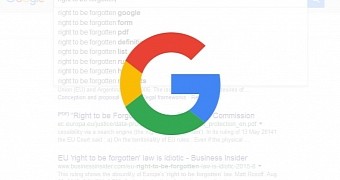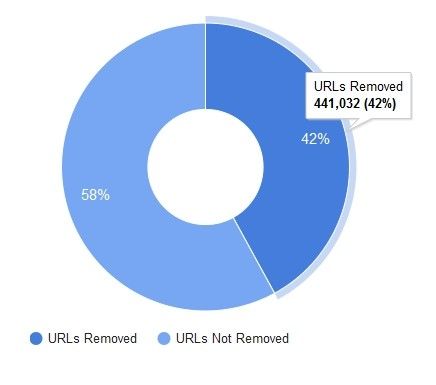Back in May 2014, Google was ordered by the Court of Justice of the European Union to start removing links from its search results that are not relevant anymore. Google complied, and the ruling came to be known as the Right-to-Be-Forgotten Law (RTBFL).
After implementing the decision, the company started to periodically reveal statistics regarding the number of RTBFL requests it was receiving from users and governments alike.
In its most recent report, the company shows that the most common links it is asked to remove from search results are Facebook URLs.
Facebook links have been the most removed
From May 2014 until now, Google says it has removed 10,220 Facebook URLs, followed by 7,986 profileengine.com links, 6,764 links to Google Groups threads, 5,364 YouTube links, and 4,428 Badoo URLs.
Other commonly removed domains include Google+, annuaire.118712.fr, Twitter, Whereevent, and 192.com. These top 10 most removed domains account only for 9% of the total number of removed links, which means they are not particularly targeted.
Google has also said that most users that submit requests are coming from France followed, in order, by Germany, Great Britain, Spain, and Italy.
The company claims that, at this point, it has honored 42% of all removal requests, after receiving 348,085 requests for 1,234,092 URLs.
Right-to-Be-Forgotten, a never-ending legal battle
Currently, Google is also in a legal battle with CNIL, France's user privacy watchdog. While Google has been removing links only for Google.fr, Google's local French extension, CNIL wants these links removed globally.
Google has refused to do so, saying that the French government has no right to censor the entire Internet.
A Canadian court brought a similar lawsuit against Google a few weeks later, asking Google to censor its worldwide results, not just the google.ca domain.
While Google has been doing its due diligence, these attempts to censor information on the Internet by going after Google, an intermediary, instead of the links' sources, show that most governments are just lazy when it comes to the true meaning of "privacy" and the "right to be forgotten."
Check out Google's report for a summary of cases where Google decided to approve or deny the removal of URLs from its search listings.

 14 DAY TRIAL //
14 DAY TRIAL // 

